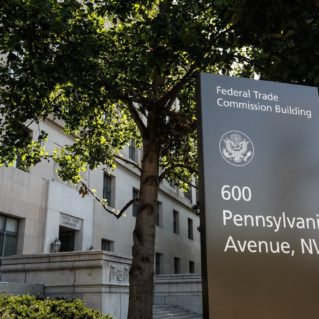On Tuesday, California lawmakers passed Assembly Bill 5, which would provide new wage and benefit protections to workers at so-called gig economy companies.
The 29-11 vote now sends it back to the state Assembly for final approval. AB5, as it is also called, has drawn staunch opposition from on-demand delivery and ridesharing companies like Uber and Lyft, who have vowed to fight the measure, as well as Republicans; it is winning support from many of the Democratic presidential contenders.
AB5 puts into law a California Supreme Court decision making it harder for companies to classify workers as independent contractors. The bill would make those companies classify their workers as employees instead. While the bill’s impact on gig economy companies has drawn most of the attention, it would affect a wide array of industries. Fortunately, direct sellers were included in the first list of exemptions under the bill.
In an article posted yesterday, the Foundation for Economic Education (FEE) opined that California’s passage of AB5 may have killed the gig economy.
FEE argues that the gig economy was never meant to be a traditional sector and treating it as such belittles what it actually is—an opportunity offering freedom and flexibility. In fact, says FEE, much of the reason it has been so profitable for all involved is because its model is brilliant.
Gig economy workers have made the choice to forgo employee perks—paid sick time, unemployment and disability insurance and retirement benefits—because they believed the benefits of the gig economy outweigh any potential negatives.
Yet, despite this being a personal decision that should be made by each individual, the state of California has presumed to understand the wants and needs of each gig economy worker through the passage of AB 5. And the entire gig economy may suffer as a result.
If the bill is signed into law, companies will have to determine a worker’s status—employee or contractor—through the “ABC test,” which was instituted in 2018 with the Dynamex Operations West, Inc. v. Superior Court of Los Angeles ruling. If a worker does not explicitly meet the broad set of criteria, they are considered an employee, not a contractor.
This means that companies like TaskRabbit, DoorDash, Uber and Lyft will have to treat these individuals as employees, offering them minimum wage, benefits and all the perks that go along with it. They will suddenly be left with costs for which they never planned. For many, these costs will be impossible to afford and could signal their end.
FEE notes that the real danger with AB5 is the excuse it gives to other states for implementing similar policies. Now that one of the largest states has passed legislation it is likely that others may follow suit.
And what follows then? The bill could open the door for other business sectors to implement policies regarding the employee vs. contractor status. You never know, direct selling could be among them.


